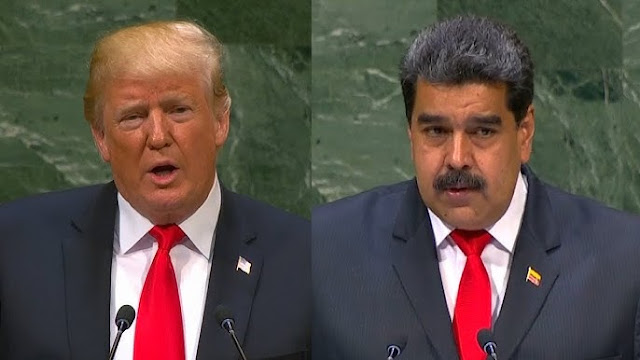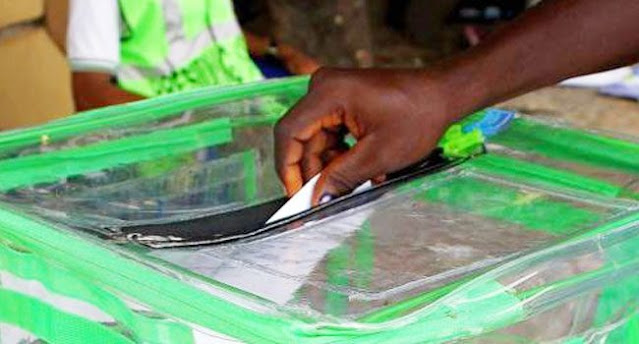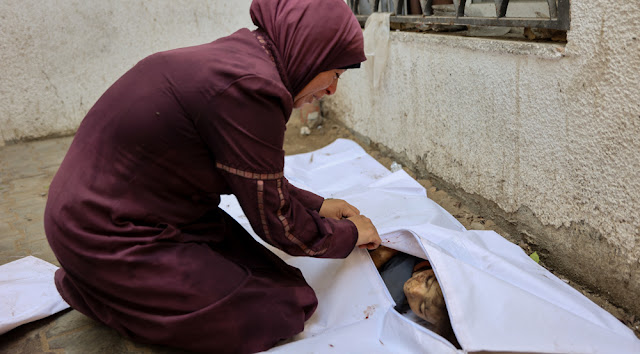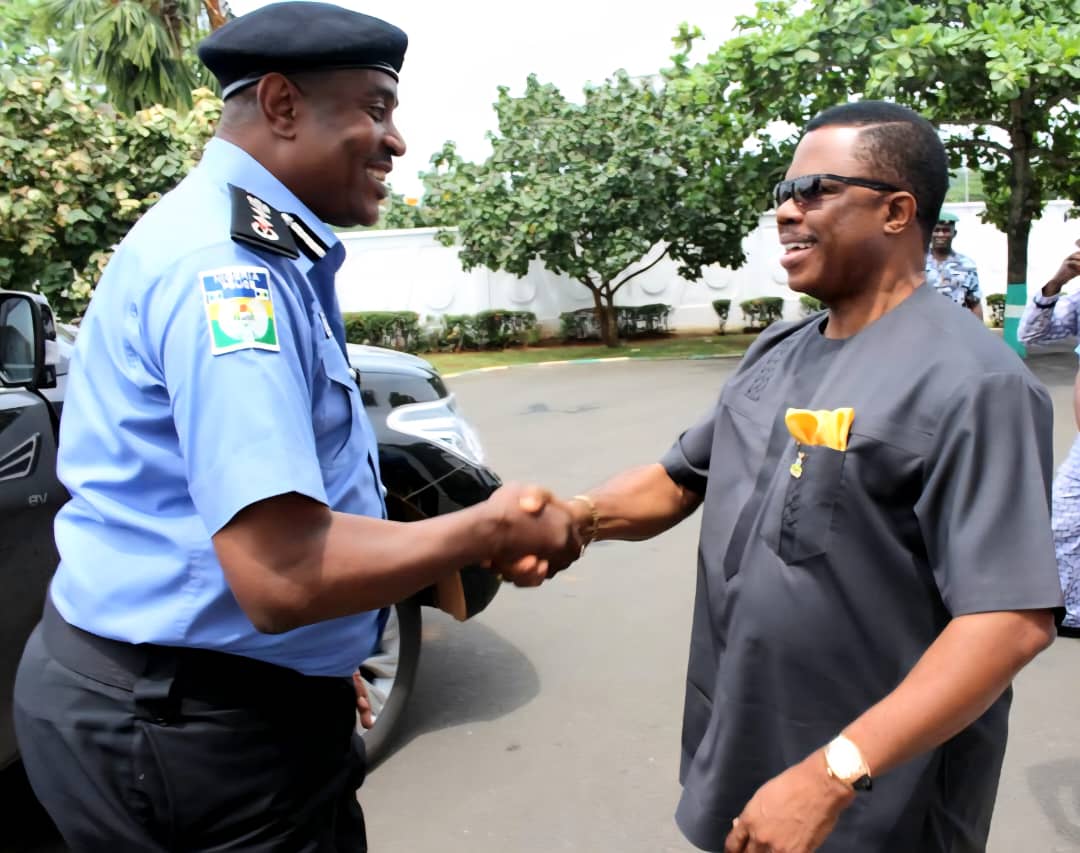In a dramatic escalation of tensions between Venezuela and the United States, Venezuelan President Nicolás Maduro has issued a stern warning of retaliation in response to the U.S. deployment of warships to the Caribbean. The move, reported by Linda Ikeji’s Blog on September 2, 2025, follows the U.S. government’s decision to bolster its maritime presence in the region, ostensibly to combat Latin American drug cartels. Speaking at a news conference in Caracas on September 1, 2025, Maduro declared Venezuela to be at “maximum preparedness” and characterized the U.S. military buildup as an “extravagant, unjustifiable, immoral, and absolutely criminal and bloody threat.” The deployment, which includes spy planes, a guided-missile cruiser, a nuclear-powered submarine, and thousands of personnel, has raised fears of a potential military confrontation, with Maduro vowing to “declare a republic in arms” if U.S. forces attack Venezuela. This article provides an in-depth analysis of the situation, its historical and geopolitical context, the implications for Venezuela and the region, and the varied reactions to this unfolding crisis.
The U.S. Military Deployment: Scope and Objectives
The U.S. military buildup in the Caribbean, initiated under President Donald Trump’s administration, is part of a broader strategy to counter the influence of Latin American drug cartels, particularly those allegedly linked to the Venezuelan government. According to reports from Reuters, CBS News, and Newsweek, the deployment includes eight warships, including the USS Lake Erie (a Ticonderoga-class guided-missile cruiser), the USS Newport News (a nuclear-powered fast-attack submarine), and Arleigh Burke-class destroyers such as the USS Gravely, USS Jason Dunham, and USS Sampson. Additionally, the operation involves amphibious assault ships like the USS Iwo Jima, USS San Antonio, and USS Fort Lauderdale, carrying approximately 4,500 personnel, including 2,200 U.S. Marines. P-8A Poseidon maritime patrol aircraft have also been deployed to San Juan, Puerto Rico, to support intelligence and surveillance operations.
The Trump administration has framed the deployment as an anti-drug trafficking operation, targeting cartels designated as terrorist organizations, including Venezuela’s Cartel de los Soles, which U.S. officials accuse President Maduro and his inner circle of leading. In February 2025, the U.S. State Department designated eight Latin American cartels, including the Venezuelan Tren de Aragua, as foreign terrorist organizations, escalating its rhetoric against Maduro’s regime. The U.S. has also doubled the bounty for Maduro’s capture to $50 million, accusing him of being “one of the largest narco-traffickers in the world.” This narrative has been used to justify the significant military presence in the region, with White House Press Secretary Karoline Leavitt stating that the U.S. is “prepared to use all its power” to combat drug trafficking.
However, the scale of the deployment—described by some analysts as disproportionate for a counter-narcotics operation—has led to speculation about broader geopolitical objectives, including regime change. The inclusion of advanced weaponry, such as Tomahawk cruise missiles, and the presence of a nuclear-powered submarine have raised concerns about the potential for military action beyond interdiction. The U.S. has not signaled plans for a land invasion, but the deployment’s proximity to Venezuelan waters has heightened tensions, prompting Maduro’s government to respond with its own military mobilization.
Maduro’s Response and Venezuela’s Preparations
In his September 1, 2025, news conference, President Maduro warned that U.S. military action would “stain” President Trump’s “hands with blood” and described the deployment as the “greatest threat that has been seen on our continent in the last 100 years.” He claimed that eight U.S. military vessels, equipped with 1,200 missiles, were targeting Venezuela, a figure that has not been independently verified but underscores the heightened rhetoric in Caracas. Maduro’s declaration of “maximum preparedness” includes the deployment of 15,000 troops along Venezuela’s border with Colombia and the mobilization of civilian militias, which he claims number over 4.5 million members. Venezuelan Defense Minister Vladimir Padrino López announced the deployment of drones and naval patrols, including larger warships, to secure the country’s Caribbean coastline and border regions.
Maduro’s rhetoric has been both defiant and nationalistic, framing the U.S. deployment as an imperialist attempt to undermine Venezuela’s sovereignty. “President Donald Trump, the pursuit of regime change is exhausted; it has failed as a policy worldwide,” he stated, referencing past U.S. interventions in countries like Iraq and Libya. He also called U.S. Secretary of State Marco Rubio a “warlord” pushing for action to topple Venezuela’s socialist government, a charge that resonates with the country’s long-standing narrative of resisting foreign interference.
The Venezuelan government has also sought diplomatic support, with Foreign Minister Yván Gil appealing to the Community of Latin American and Caribbean States (CELAC) to demand an end to the U.S. deployment. Gil argued that the U.S. narrative of combating drug trafficking is a “false narrative,” citing a United Nations report that only 5% of cocaine produced in Colombia passes through Venezuela, compared to 87% through the Pacific. Venezuela’s mission to the United Nations filed a formal complaint, describing the deployment of the USS Newport News as a “clear act of intimidation” and a violation of the 1967 Treaty of Tlatelolco, which establishes Latin America and the Caribbean as a nuclear weapons-free zone.
Historical Context: U.S.-Venezuela Relations
The current standoff is rooted in decades of strained relations between the United States and Venezuela, particularly since the rise of Hugo Chávez’s Bolivarian Revolution in 1999. Chávez’s socialist policies, including the nationalization of the oil industry, and his anti-imperialist rhetoric set the stage for a contentious relationship with Washington. The U.S. has consistently viewed Venezuela’s socialist government as a threat to its interests in the Western Hemisphere, particularly due to its alliances with countries like Russia, China, and Iran.
Under Maduro, who succeeded Chávez in 2013, tensions have escalated further. The U.S. has refused to recognize Maduro’s presidency since 2019, instead supporting opposition leader Juan Guaidó as the legitimate interim president. This stance was reinforced after the disputed July 2024 presidential election, which Maduro claimed to have won but which credible evidence suggests was fraudulent. The U.S., along with several other countries, has imposed sanctions on Venezuela, targeting its oil industry and government officials, in an effort to pressure Maduro’s regime. These sanctions have contributed to Venezuela’s economic collapse, with hyperinflation, food shortages, and mass migration exacerbating the country’s humanitarian crisis.
The Trump administration’s first term (2017–2021) saw a policy of “maximum pressure” against Venezuela, including economic sanctions and diplomatic isolation. The current deployment appears to revive this approach, with a focus on linking Maduro’s government to drug trafficking and terrorism. The designation of the Cartel de los Soles as a terrorist organization and the increased bounty on Maduro’s head signal a continuation of this aggressive stance, though the scale of the military buildup suggests a potential escalation beyond previous efforts.
Regional and International Reactions
The U.S. deployment has elicited varied responses from regional and international actors. In Venezuela, opposition leader María Corina Machado has expressed support for the U.S. move, describing it as “the right approach” toward a government she calls a “criminal enterprise.” Machado, who was disqualified from running in the 2024 election, thanked Trump and Rubio for their actions, aligning herself with the U.S. narrative of targeting drug cartels. However, other opposition figures, such as Henrique Capriles, have cautioned against military action, emphasizing the need to respect Venezuela’s sovereignty.
Regionally, countries like Mexico and Colombia have voiced concerns about the U.S. deployment. Mexican President Claudia Sheinbaum and Colombian President Gustavo Petro have publicly opposed the move, warning that it could destabilize the region. Petro, in particular, has deployed 25,000 troops to the Colombia-Venezuela border, framing the move as a joint effort to protect regional security. Cuba’s foreign ministry has accused the U.S. of seeking to turn the Caribbean into a “war zone,” while Venezuela’s ambassador to the UN, Samuel Moncada, described the deployment as a “massive propaganda operation” to justify military intervention.
Internationally, the deployment has drawn criticism from Russia and China, both of which have economic and strategic interests in Venezuela. Russia, which has provided military support to Maduro’s government, including S-300 air defense systems, has condemned the U.S. actions as provocative. China, a major creditor to Venezuela, has called for restraint and dialogue to avoid further escalation. The United Nations has not issued a formal statement, but Venezuela’s appeal to CELAC and its UN complaint suggest an effort to rally global support against the U.S.
Humanitarian and Economic Implications
The escalating tensions come at a time when Venezuela is grappling with a severe humanitarian and economic crisis. The country’s GDP has contracted by over 60% since 2013, and hyperinflation has rendered the bolívar nearly worthless. The UN estimates that over 7 million Venezuelans have fled the country since 2015, creating one of the largest migration crises in the world. The U.S. sanctions, combined with mismanagement and corruption under Maduro’s government, have exacerbated food and medicine shortages, leaving millions in poverty.
The military buildup and the threat of conflict risk further destabilizing Venezuela’s already fragile economy. A potential U.S. military action, even if limited to maritime operations, could disrupt Venezuela’s oil exports, which account for 95% of its foreign exchange earnings. The country’s oil production, already at historic lows, could face additional setbacks, further limiting the government’s ability to fund essential services. For ordinary Venezuelans, the prospect of conflict adds to the daily struggles of accessing food, healthcare, and basic necessities.
The humanitarian impact of the U.S. deployment is also a concern for neighboring countries. Colombia, which hosts over 2 million Venezuelan migrants, could face an influx of refugees if the situation escalates. Brazil and Guyana, which share borders with Venezuela, have also expressed concerns about regional stability. The deployment’s focus on drug trafficking has been questioned by analysts, who note that the scale of the military presence—particularly the inclusion of a nuclear-powered submarine—suggests objectives beyond counter-narcotics operations.
Domestic Dynamics in Venezuela
Within Venezuela, Maduro’s response to the U.S. deployment has served to rally his base and reinforce his narrative of resisting foreign aggression. The mobilization of civilian militias and the deployment of troops along the Colombian border are designed to project strength and unity in the face of external threats. Maduro’s claim that he maintains two lines of communication with the Trump administration—one through the U.S. State Department and another through Trump’s envoy, Richard Grenell—suggests an attempt to balance defiance with diplomacy.
However, the regime faces significant domestic challenges. The disputed 2024 election has deepened political divisions, with the opposition, led by figures like Machado, continuing to challenge Maduro’s legitimacy. Protests against the government have been met with repression, and the UN has documented over 2,000 arrests of political activists since July 2024. The economic crisis has eroded public support for Maduro, with many Venezuelans blaming his policies for their hardships. The U.S. deployment could provide Maduro with a convenient external enemy to deflect criticism, but it also risks galvanizing opposition calls for international intervention.
The Role of Technology and Military Strategy
The U.S. deployment highlights the increasing role of advanced technology in modern warfare. The use of P-8A Poseidon aircraft for surveillance and the deployment of guided-missile destroyers equipped with Tomahawk missiles demonstrate the U.S.’s technological superiority in the region. These assets allow for precise intelligence-gathering and the potential for targeted strikes, though the U.S. has emphasized that its operations are focused on maritime interdiction rather than land-based intervention.
Venezuela’s response, including the deployment of drones and naval patrols, reflects its attempt to counter U.S. technological advantages with its own capabilities. However, Venezuela’s military, hampered by years of underfunding and sanctions, is ill-equipped to match the U.S. in a direct confrontation. Russia’s military support, including air defense systems and training, has bolstered Venezuela’s defenses, but analysts doubt its ability to sustain a prolonged conflict.
Ethical and Legal Considerations
The U.S. deployment raises significant ethical and legal questions, particularly regarding the use of military force in international waters near a sovereign nation. Venezuela’s complaint to the UN cites the 1967 Treaty of Tlatelolco, which prohibits the deployment of nuclear weapons in Latin America and the Caribbean. While the USS Newport News is a nuclear-powered submarine, not a nuclear-armed vessel, its presence has been described as a violation of the treaty’s spirit, if not its letter.
The targeting of drug cartels as terrorist organizations also raises questions about the proportionality of the U.S. response. Critics argue that the deployment of advanced warships and thousands of personnel is excessive for counter-narcotics operations, suggesting ulterior motives such as regime change. The lack of transparency about the U.S.’s specific objectives has fueled accusations of imperialism, particularly in light of its history of interventions in Latin America, including the 1989 invasion of Panama.
The Path Forward: Diplomacy or Escalation?
The current standoff presents a critical juncture for U.S.-Venezuela relations and regional stability. Diplomatic efforts to de-escalate tensions are essential to avoid a military confrontation that could have devastating consequences for Venezuela and the broader Caribbean. The U.S. could engage in backchannel negotiations through intermediaries like Qatar, which has facilitated previous talks between the two sides. A focus on addressing shared concerns, such as drug trafficking, could provide a framework for dialogue, though mutual distrust remains a significant obstacle.
For Venezuela, the challenge lies in balancing its defiance of the U.S. with the need to address domestic crises. Maduro’s mobilization of militias and troops may bolster his image as a strong leader, but it risks further alienating the international community and exacerbating economic woes. Regional organizations like CELAC and the Organization of American States (OAS) could play a role in mediating the crisis, though their effectiveness is limited by political divisions.
The international community, particularly the UN, must prioritize humanitarian concerns, ensuring that any escalation does not worsen Venezuela’s already dire situation. Increased aid to address food and medicine shortages, coupled with pressure for a transparent electoral process, could help stabilize the country and reduce the risk of conflict.
Conclusion
The U.S. deployment of warships to the Caribbean and Venezuela’s threat of retaliation represent a dangerous escalation in a region already fraught with tension. President Maduro’s warnings, coupled with the mobilization of Venezuelan forces, underscore the stakes of this confrontation, which could have far-reaching implications for regional stability and global geopolitics. The Trump administration’s focus on drug cartels provides a pretext for the deployment, but the scale and nature of the military buildup suggest broader objectives, raising fears of a potential regime-change operation.
As the crisis unfolds, the international community faces a delicate balancing act: addressing legitimate concerns about drug trafficking while preventing a military conflict that could devastate Venezuela and destabilize the region. The reactions of regional leaders, opposition figures, and global powers highlight the complexity of the situation, with competing narratives of sovereignty, security, and human rights shaping the discourse. For now, the Caribbean remains a flashpoint, with the world watching closely to see whether diplomacy or confrontation will prevail.







